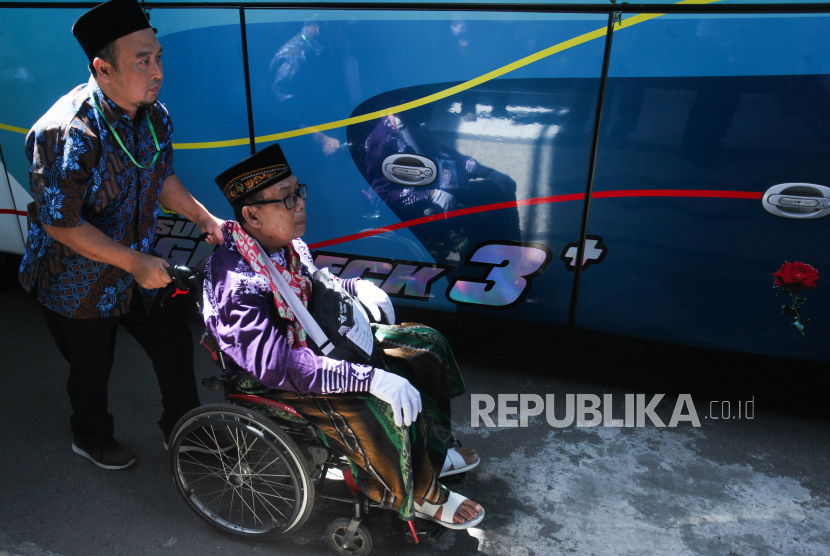REPUBLIKA.CO.ID, JAKARTA -- Indonesian hajj pilgrims have gradually begun arriving in Makkah to perform mandatory umrah. Pilgrims requiring wheelchairs are urged to use official pushchairs at Masjid al-Haram in Makkah, Saudi Arabia.
This message was delivered by a member of the Media Center of the Ministry of Religious Affairs (Ministry of Religious Affairs) Widi Dwinanda while reading the official statement of the Ministry at Haji Hostel Pondok Gede, Jakarta, Thursday (23/5/2024).
According to him, after arriving at the Makkah hotel, Hajj officers will register and group worshippers who use wheelchairs. Most of them are elderly, disabled and high-risk worshippers. Officers will also arrange the execution process of wheelchair user umroh worshippers.
“Accompanied by officers, the worshippers got into a shalawat bus that had been equipped with wheelchair access to be taken to the Masjid al-Haram,” Widi said.
Widi said the officers carefully checked back to make sure the worshipers had properly dressed in ihram clothes, wore wudu, and guided the worshipers to pray before boarding the shalawat bus.
“Throughout the journey to Masjid al-Haram, Hajj officers continued to guide and lead worshippers in talbiyah,” Widi said.
He explained that in order to facilitate the procession of Tawaf and Sai, especially for elderly and disabled pilgrims, the manager of the Masjid al-Haram facilitates and provides wheelchair rental services as well as scooter rentals.
“The manager of Masjid al-Haram provides special paths for worshippers going to Tawaf and Sai using the services of wheelchair pushers and scooter-specific paths,” he explained.
According to him, the mosque manager has set the price of wheelchair and scooter driving services. The payment mechanism is made after the worshipper completes his service with the fare details: Pre Peak Hajj: Tawaf and Sa'i SAR 250 Package and Post Haji Peak: Tawaf and Sa'i SAR 500 to 600 Package.
“Elderly Hajj service officers will prepare control cards to assist worshippers in renting wheelchairs at the Shib Amir terminal and Ajyad terminal,” Widi explained.
He said that the official wheelchair drivers present in the Masjid al-Haram can be recognized by features. First, wearing a wheelchair pusher officer's vest. Secondly, the driving vest is gray and moss green (morning shift) or brown (night shift). Third, there was a back number and chest number on his vest.
“Knowing well the specific characteristics and identity of such wheelchair drivers by worshipers is very important to avoid oknum or other parties offering congregational pushing services that are going to Tawaf and Sai at rates outside the stipulated provisions of the mosque manager and would harm the worshipers,” he explained.
Wini reiterated that it would ignore the presence of anyone offering wheelchair services in addition to the attendant and official rates issued by the mosque manager and did not wear this official identity and invitation as part of the officers' protection efforts against worshippers.
Widi added that Saudi Arabia's PPIH also urged worshippers before performing the mandatory umrah to keep a small bag containing all the required documents, carry a sandal pocket and be carried during the Umrah service.
“Keep wearing identification in the form of wristbands and smart cards that officers have given, stay in groups to avoid potential getting lost,” Widi said.
Widi added that do not hesitate to ask the Hajj officer for help if you find difficulties. Saudi Arabia's PPIH has placed officers who are in the terminal, in the area and on the night of the mosque in easily recognizable uniforms. They are on standby 24 hours to assist and serve worshippers during the worship service at the Masjid al-Haram.


